第11章 Chapter 3(4)
There was one amongst them 'On Bonaparte'--remarkably beautiful --and had I not seen it in his own handwriting I never would have believed it to have been the production of a child.It is destroyed.
Pardon my troubling you with these specimens,and requesting you never to mention it,as Robert would be very much hurt.
I remain,dear sir,Your obedient servant,R.Browning.
Bank:March 11,1843.
The letter was accompanied by a sheet of verses which have been sold and resold,doubtless in perfect good faith,as being those to which the writer alludes.But Miss Browning has recognized them as her father's own impromptu epigrams,well remembered in the family,together with the occasion on which they were written.
The substitution may,from the first,have been accidental.
We cannot think of all these vanished first-fruits of Mr.Browning's genius without a sense of loss,all the greater perhaps that there can have been little in them to prefigure its later forms.Their faults seem to have lain in the direction of too great splendour of language and too little wealth of thought;and Mr.Fox,who had read 'Incondita'
and been struck by its promise,confessed afterwards to Mr.Browning that he had feared these tendencies as his future snare.
But the imitative first note of a young poet's voice may hold a rapture of inspiration which his most original later utterances will never convey.It is the child Sordello,singing against the lark.
Not even the poet's sister ever saw 'Incondita'.It was the only one of his finished productions which Miss Browning did not read,or even help him to write out.She was then too young to be taken into his confidence.Its writing,however,had one important result.It procured for the boy-poet a preliminary introduction to the valuable literary patron and friend Mr.Fox was subsequently to be.It also supplies the first substantial record of an acquaintance which made a considerable impression on his personal life.
The Miss Flower,of whom mention has been made,was one of two sisters,both sufficiently noted for their artistic gifts to have found a place in the new Dictionary of National Biography.The elder,Eliza or Lizzie,was a musical composer;the younger,best known as Sarah Flower Adams,a writer of sacred verse.Her songs and hymns,including the well-known 'Nearer,my God,to Thee',were often set to music by her sister.They sang,I am told,delightfully together,and often without accompaniment,their voices perfectly harmonizing with each other.Both were,in their different ways,very attractive;both interesting,not only from their talents,but from their attachment to each other,and the delicacy which shortened their lives.They died of consumption,the elder in 1846,at the age of forty-three;the younger a year later.
They became acquainted with Mrs.Browning through a common friend,Miss Sturtevant;and the young Robert conceived a warm admiration for Miss Flower's talents,and a boyish love for herself.
She was nine years his senior;her own affections became probably engaged,and,as time advanced,his feeling seems to have subsided into one of warm and very loyal friendship.We hear,indeed,of his falling in love,as he was emerging from his teens,with a handsome girl who was on a visit at his father's house.
But the fancy died out 'for want of root.'The admiration,even tenderness,for Miss Flower had so deep a 'root'that he never in latest life mentioned her name with indifference.In a letter to Mr.Dykes Campbell,in 1881,he spoke of her as 'a very remarkable person.'
If,in spite of his denials,any woman inspired 'Pauline',it can have been no other than she.He began writing to her at twelve or thirteen,probably on the occasion of her expressed sympathy with his first distinct effort at authorship;and what he afterwards called 'the few utterly insignificant scraps of letters and verse'
which formed his part of the correspondence were preserved by her as long as she lived.But he recovered and destroyed them after his return to England,with all the other reminiscences of those early years.Some notes,however,are extant,dated respectively,1841,1842,and 1845,and will be given in their due place.
Mr.Fox was a friend of Miss Flower's father (Benjamin Flower,known as editor of the 'Cambridge Intelligencer'),and,at his death,in 1829,became co-executor to his will,and a kind of guardian to his daughters,then both unmarried,and motherless from their infancy.
Eliza's principal work was a collection of hymns and anthems,originally composed for Mr.Fox's chapel,where she had assumed the entire management of the choral part of the service.
Her abilities were not confined to music;she possessed,I am told,an instinctive taste and judgment in literary matters which caused her opinion to be much valued by literary men.
But Mr.Browning's genuine appreciation of her musical genius was probably the strongest permanent bond between them.
We shall hear of this in his own words.